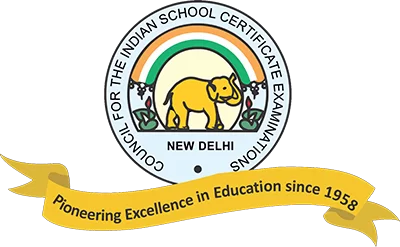India, with its rich tapestry of history and cultural diversity, offers students a unique opportunity to delve into the past and witness the remnants of ancient civilizations, dynasties, and empires. From magnificent palaces to intricately carved temples, India’s historical sites provide a fascinating journey through time. In this article, we will explore 10 must-visit historical places in India that offer students valuable insights into the country’s vibrant history.
- Taj Mahal, Agra:
Undoubtedly one of the most iconic symbols of India, the Taj Mahal stands as a testament to the enduring power of love. Commissioned by Emperor Shah Jahan in memory of his beloved wife Mumtaz Mahal, this white marble mausoleum is a marvel of Mughal architecture. Students can marvel at the intricate details, learn about the cultural influences that shaped its design, and understand the historical context of the Mughal Empire.
- Jaipur City Palace, Rajasthan:
The Pink City of Jaipur is home to the majestic City Palace, a complex that beautifully blends Rajput, Mughal, and European architectural styles. Students can explore the various courtyards, museums, and art galleries within the palace complex, gaining insights into the royal lifestyle of the Maharajas of Jaipur. The Palace also provides a glimpse into the city’s cultural heritage.
- Hampi, Karnataka:
The ruins of Hampi, a UNESCO World Heritage Site, transport students to the Vijayanagara Empire, which flourished in the 14th to 16th centuries. Hampi’s sprawling landscape is dotted with magnificent temples, intricate carvings, and the remnants of a once-prosperous city. Students can witness the architectural brilliance of the Vijayanagara rulers and understand the cultural and economic significance of the empire.
- Qutub Minar, Delhi:
Delhi, the capital city of India, boasts several historical sites, and Qutub Minar is a standout example of Indo-Islamic architecture. This towering minaret, built in the early 13th century, is surrounded by other historical structures, including the Iron Pillar of Delhi. Students can explore the complex, learn about the various dynasties that contributed to its construction, and appreciate the fusion of different architectural styles.
- Ajanta and Ellora Caves, Maharashtra:
The Ajanta and Ellora Caves, a UNESCO World Heritage Site, are a testament to India’s rich artistic and religious history. Carved into the rock, these caves showcase intricate sculptures and paintings that depict Buddhist, Hindu, and Jain themes. Students can witness the evolution of art and architecture across different time periods, gaining a deeper understanding of the cultural and religious diversity of ancient India.
- Red Fort, Delhi:
Built by Emperor Shah Jahan, the Red Fort in Delhi is an imposing structure that served as the main residence of the Mughal emperors for nearly 200 years. Students can explore the Diwan-i-Am, Diwan-i-Khas, and the iconic Lahore Gate, learning about the political and cultural significance of the fort in India’s history. The Red Fort is also associated with India’s struggle for independence.
- Khajuraho Group of Monuments, Madhya Pradesh:
Renowned for its stunning temples adorned with intricate and explicit sculptures, the Khajuraho Group of Monuments is a UNESCO World Heritage Site. These temples, built between the 9th and 12th centuries, depict various aspects of life, culture, and spirituality in medieval India. Students can appreciate the artistic achievements of the Chandela dynasty and gain insights into the societal norms of the time.
- Fatehpur Sikri, Uttar Pradesh:
A historical city built by Emperor Akbar in the 16th century, Fatehpur Sikri is a UNESCO World Heritage Site that stands as a testament to Mughal architecture and urban planning. Students can explore the well-preserved structures, including the Buland Darwaza and the Jama Masjid, and learn about Akbar’s vision for an inclusive and harmonious empire.
- Mahabalipuram, Tamil Nadu:
The coastal town of Mahabalipuram is famous for its group of sanctuaries and monolithic rock-cut temples, also recognized as a UNESCO World Heritage Site. Students can explore the Shore Temple, Arjuna’s Penance, and the Five Rathas, gaining insights into the Pallava dynasty’s architectural prowess and maritime trade activities.
- Sanchi Stupa, Madhya Pradesh:
Built by Emperor Ashoka in the 3rd century BCE, the Great Stupa at Sanchi is one of the oldest stone structures in India. It serves as a significant Buddhist pilgrimage site and is adorned with intricate carvings depicting the life of Buddha. Students can explore the site, learn about Ashoka’s conversion to Buddhism, and understand the spread of Buddhism in ancient India.
In conclusion, India’s historical places offer students a unique opportunity to connect with the past, appreciate diverse cultures, and gain insights into the country’s rich heritage. These 10 must-visit historical sites provide a comprehensive overview of India’s history, from the ancient civilizations to the medieval empires, allowing students to witness the evolution of art, architecture, and societal norms over the centuries. Educational trips to these sites can be both inspiring and informative, fostering a deeper appreciation for the complexities of India’s cultural tapestry.






